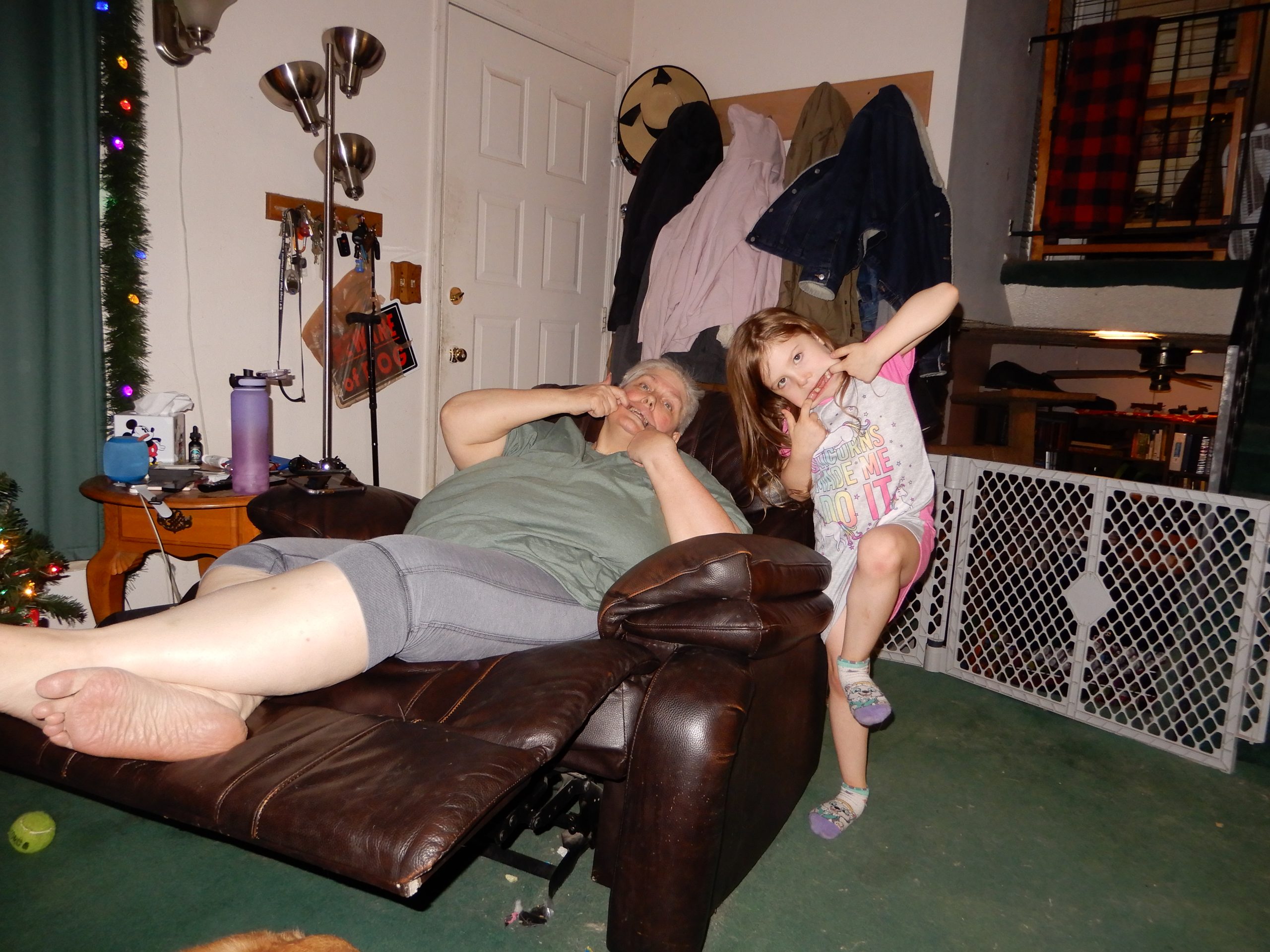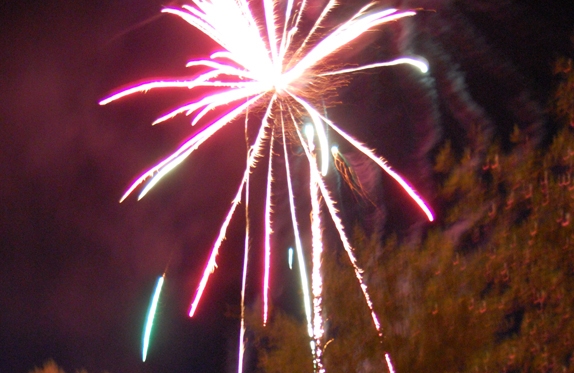Folk Song
I’m a geek. No apologies. Weird stuff gets stuck in my head.
The StarTrek: The Next Generation episode “Family” featured Picard and his brother singing a French song together after fighting and then reconciling / drinking. The refrain was all I could remember:
Auprès de ma blonde, qu’il fait bon, fait bon, fait bon…
SO… a few Googlicious moments later I’ve got the tune:
[quicktime width=”250″ height=”40″]http://www.macwebguru.com/wp-content/uploads/2009/03/aupres_de_ma_blonde.mid[/quicktime]
and the lyrics:
Auprès de ma blonde (next to my girlfriend)
Au jardin de mon père les lilas sont fleuris
Au jardin de mon père les lilas sont fleuris
Tous les oiseaux du monde y viennent faire leurs nids.
Refrain
Auprès de ma blonde, qu’il fait bon, fait bon, fait bon,
Auprès de ma blonde, qu’il fait bon dormir.
La caille, la turturelle, et la jolie perdris
La caille, la turturelle, et la jolie perdris
Et la jolie colombe qui chante jour et nuit.
Refrain
Qui chante pour les filles qui n’ont pas de maris
Qui chante pour les filles qui n’ont pas de maris
Pour moi, je chante guère car j’en ais un joli.
Refrain
Que donneriez-vous, belle, pour avoir un mari?
Que donneriez-vous, belle, pour avoir un mari?
Je donnerai Versailles, Paris et St. Denis.
Refrain
Les tours de Notre Dame et les cloches de mon pays
Les tours de Notre Dame et les cloches de mon pays
Et ma jolie colombe qui chante jour et nuit.
Refrain
Cross references from Wikipedia
and this history taken from Everything2:
Auprès de ma Blonde
This well-known French folk-song (also known as The Prisoner in Holland) seems to date from the reign of Louis XIV, when France was at war with the United Provinces – the present-day Netherlands. The Netherlands were ruled by William III of Orange, who also became King of Great Britain. The wars were bloody and largely inconclusive, but form the backdrop to various songs and stories. Some refer to the Duke of Marlborough, who rose to prominence under King William and became one of the main allied generals under Queen Anne, as the War of the Spanish Succession unfolded. Alexandre Dumas (père) used the siege of Maastricht for the final scene of The Man in the Iron Mask. This song has a mournful tone, especially in the verses, as you will see. I’ve liked this song since before I understood the words, hearing my mother singing it as she worked. Knowing the words, and their themes of love, separation, and loss, has only increased that liking.
In each verse, the last couplet of the previous verse is sung twice, and then a new couplet sung once, and then the chorus. The first verse is written out in full, and after that, I’ve just added the new couplet. The English translation is not intended to be at all poetic, but it is intended to fit the tune, more or less, and to be an accurate reflection of the French meaning. I have not been able to replicate the rhyme-scheme, which is somewhat irregular in any case. In sung French, terminal ‘e’s which are silent in speech are often pronounced to improve scansion, and this is the case here.
Dans les jardins de mon père
Les lilas sont fleuris;
Dans les jardins de mon père
Les lilas sont fleuris;
Tous les oiseaux du monde
Vient y faire leurs nids.Auprès de ma blonde
Qu’il fait bon, fait bon, fait bon –
Auprès de ma blonde
Qu’il fait bon dormi.O, in my father’s garden
The lilies are in bloom;
O, in my father’s garden
The lilies are in bloom;
The birds of all creation1
Come there to build their nests.Ah, near to my blonde lass,
It’s so good to sleep, to sleep –
Ah, near to my blonde lass
It’s so good to sleep.2La caille, la touterelle,
Et le joli perdrix;The turtle-doves and quails,
And bonny partridges;3Et ma jolie colombe,
Qui chante jour et nuit.And my own pretty stock-dove
Which sings both night and day.Qui chante pour les filles
Qui n’ont pas de mari.Which sings for all the lassies
Who haven’t got a lad4.Pour moi ne chante guère,
Car j’en ai un joli.It scarcely sings for me now,
For I’ve a handsome lad5.Dites-nous donc la belle,
Ou donc est votr’ mari.So tell us then, O beauty,
Where your fine husband is.Il est dans la Hollande –
Les Hollandais l’ont pris.He’s gone into the Netherlands –
The Dutch have taken him.‘Que donneriez-vous belle
Pour avoir votre ami?’‘And what fair thing would you give
To have your husband back?’6Je donnerai Versailles
Paris, et Saint-Denis;O, I would give Versailles
Paris, and Saint-Denis;Les tours de Notre Dame
Et le clocher de mon pays;The towers of the cathedral
And the belfry of my land;Et ma jolie colombe
Qui chante jour et nuit.And my own pretty stock-dove
Which sings both night and day.
Notes on the translation:
- Literally, ‘All the birds of the world’.
- The chorus is the refrain of the prisoner, while the verses are for his wife and her companions.
- The French has singular birds here; in English, the plurals scan better
- Literally, ‘Which sings for all the girls (or daughters) / who have no husband’
- This verse doesn’t have a noun in the French. ‘J’en ai un’ literally means ‘I have one (of them)’.
- ‘Ami’ means ‘(boy)friend’, not ‘husband’. It’s not clear whether ‘belle’=’beautiful’ refers to the prisoner’s wife, or to the things she mentions next.


















Thanks, I’ve loved this song for so long….now I know all the words! Thanks, so much! :)
I DID enjoy finding this song! Thanks an awful lot!
Que donneriez-vous, belle (comma should be there). “Belle” refers to the
woman to whom the question is addressed, I am sure. My French-speaking parents
taught me that song when I was a child.